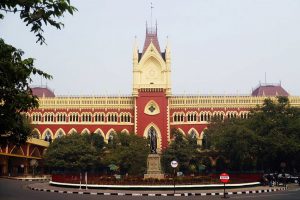Calcutta High Court: In a case wherein directors of the Board of society had published defamatory statements against the Vice Chairman of the society and circulated the same in the whole society and pasted it on the elevators to defame him, Bibek Chaudhuri, J., explained the offence of defamation and what are the essentials to prove that harm has been caused to the reputation of a person.
Background
Instant application was filed under Section 482 of the Code of Criminal Procedure for quashing of proceedings under Section 500 of the Penal Code, 1860.
Facts leading to the present matter
An aged widow/apartment owner of society had applied for permission to effecting repairs of her apartment. Secretary of the society allowed the same.
The said repairing work was stopped by passing a resolution alleging that the aged widow/apartment owner might transfer her membership of the society and her apartment.
Later, the legal advisor of the society gave an opinion that the resolution adopted was illegal and in contravention of the applicable statute.
Complainant construed to the resumption of the repair work at the said owner’s apartment and accused 1 to 3/petitioners opposed the same. When accused 2 started shouting at the complainant, he decided to recuse himself from the said meeting.
An alleged defamatory letter was circulated amongst all the members of the society wherein the following was stated:
(i) Complainant threatened Petitioners with dire consequences and also demeaned female members of the society.
(ii) Opposite party caused premature dissolution of the meeting by indecorous behavior in breach of his duties as vice-chairman of the Board of Directors.
(iii) Opposite party was dismissive of the lawful suggestions made by petitioners.
OP through his advocate issued notice to petitioner for ceasing the publication and circulation of the alleged defamatory letter and to issue written apology denying the impugned allegations against him. Even after the said notice, the letter was found to be pasted on the wall of the elevators of the apartments.
In the present application, petitioners submitted that they were innocent and in no way connected with any offence far less offence alleged.
Analysis, Law and Decision
Section 499 IPC
High Court in view of a Supreme Court decision referred by the parties recorded that to constitute an offence of defamation under Section 499 of Penal Code, 1860, there has to be imputation and it must have been made in the manner as provided in the provision with the intention of causing harm or having reason to believe that such imputation will harm the reputation of the person about whom it has made.
Causing harm to the reputation of a person is the basis on which the offence is founded and the mens rea is a condition precedent to constitute the said offence.
Section 44 of the Indian Evidence Act
Any harm whatever illegally caused to any person, in body, mind, reputation or property amounts to “injury” within the meaning of Section 44 of the Indian Evidence Act. The harm caused to the reputation of any person is a form of injury.
“…the offence of defamation is the harm caused to the reputation of a person.”
OP was the Vice-Chairman of the society and petitioners were the directors of the Board of the same society.
Both the parties alleged that they were insulted by each other. OP alleged that publication of the letter containing defamatory statements was caused only to defame him in the estimation of others.
Further, the Bench stated that the following questions of facts are first to be determined by the Trial Court,
“Whether the content of the said letter was defamatory or not, or whether it was it was published by the petitioners or not, or whether it came to the notice of others or not or whether the complainant’s reputation was demeaned in the estimation by others or not…”
Therefore, in view of the above discussion criminal proceeding cannot be quashed invoking the inherent power of this Court contained under Section 482 of the Code. [Alpana Ghosh v. Amitava Ghosh, CRR 278 of 2018, decided on 1-10-2021]
Advocates before the Court:
For the Appellants:
Mr Rajdeep Mazumdar, Adv., Mr Mayukh Mukherjee, Adv.
For the Respondents:
Mr Sandipan Ganguly, Sr. Adv., Mr. Dipanjan Dutta, Adv.,
Mr Rajiv Kumar, Adv.,
Ms Sambrita Chatterjee, Adv.

